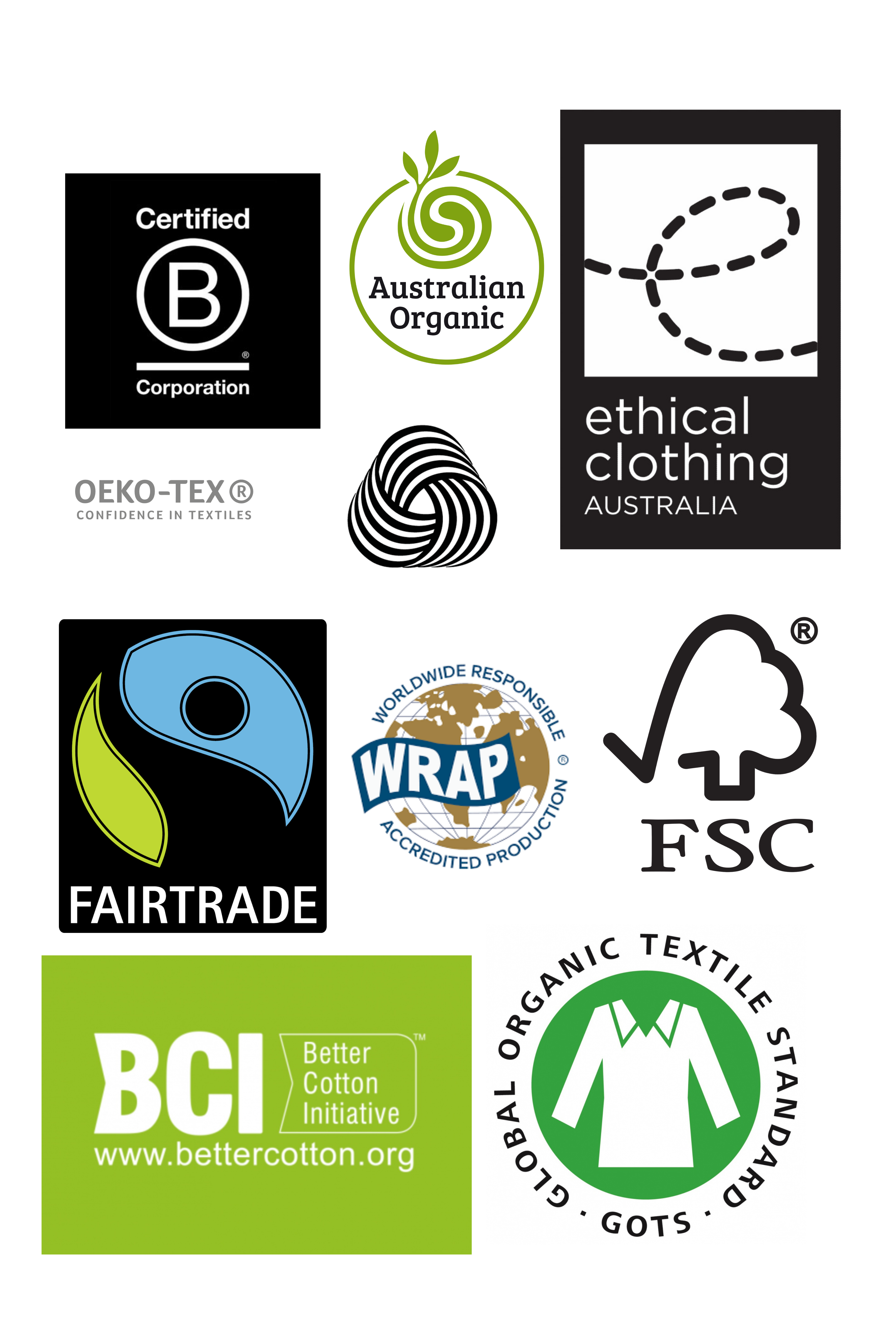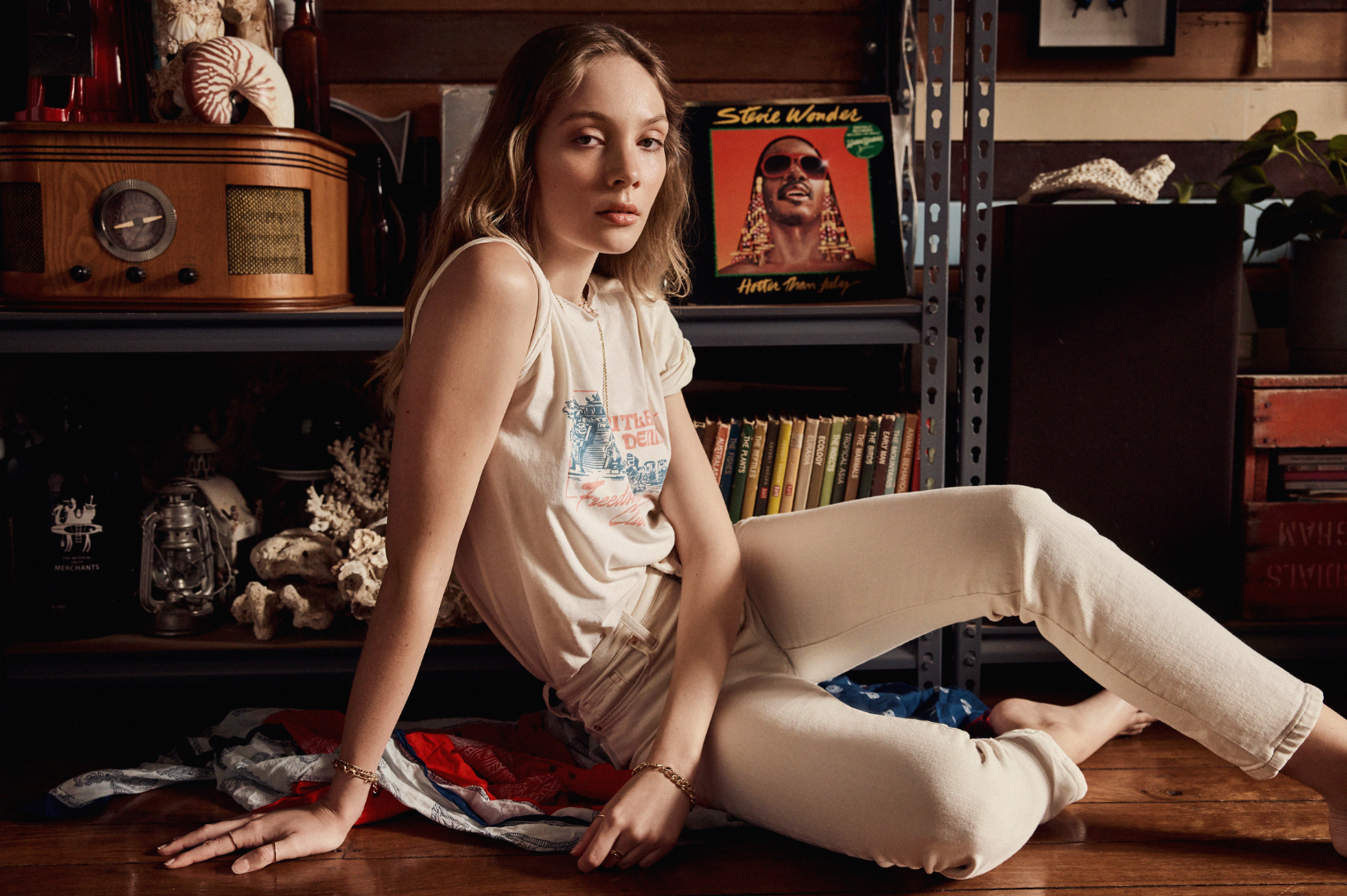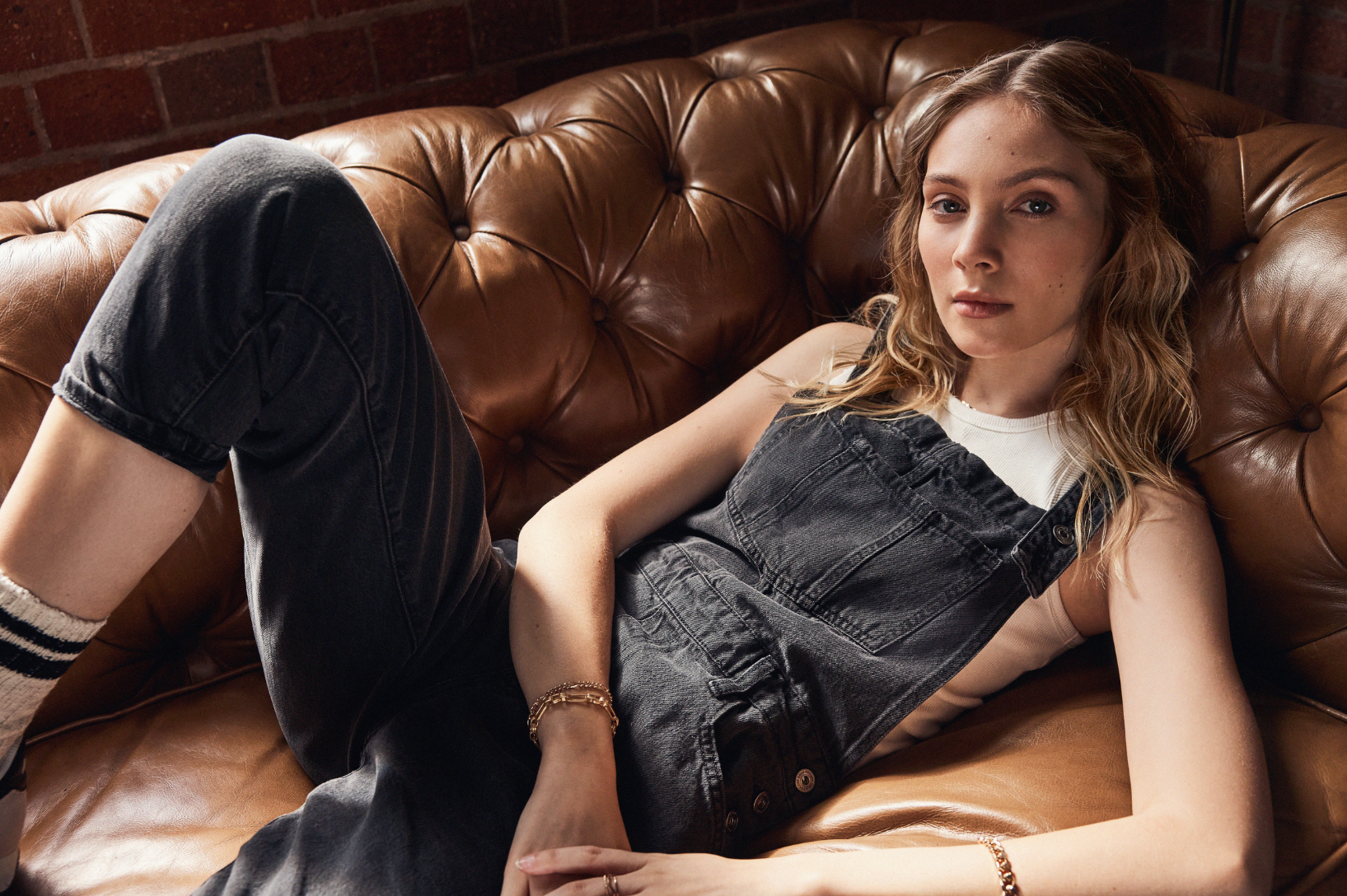These days, it’s hard to know which brands can back up their grand claims of sustainability and ethics, and which ones are telling fibs through the gross veil of greenwashing. One quick and easy way to know if a brand is walking the sustainable walk is by searching for their ethical fashion certifications.
It’s important to understand what these particular certifications mean so you have the ability to make your own decisions confidently without fear of being greenwashed. With this in mind, we’ve put together a list of 10 ethical fashion certifications that you’ll often find slapped onto swing tags of ethical fashion products. So, keep calm and read on, ‘cause these definitions will definitely come in handy next time you go to make an “ethical” purchase.
ACO
An organic product is produced without the use of any harmful chemicals. If a product is Australian Certified Organic (ACO), that particular product has met and complied with Australian production standards and every ingredient in that product is completely traceable.
BCI
The Better Cotton Initiative (BCI) works towards making cotton a sustainable mainstream commodity, and improving the environmental and social impacts brought about by cotton production. If a product includes the BCI label, the process of the cotton used in that item has been mindfully grown and exported.
BLUESIGN
BLUESIGN is an independent authority that provides sustainable solutions for processing and manufacturing to brands and industries alike. If a product is BLUESIGN approved, this means that it was made responsibly, both in regards to people and the planet, and all negative social and environmental impacts were kept to an absolute minimum.
Certified B Corporation
If a business is labelled as a Certified B Corporation it means that it has been recognised as a corporation that is playing its part in driving positive change towards a more sustainable economy. Certified B Corps balance profit and purpose, are completely transparent, and meet the highest standards of social and environmental performance.
ECA
Ethical Clothing Australia (ECA) is an accreditation body that works collaboratively with local textile, clothing and footwear (TCF) businesses to protect and uphold the rights of Australian garment workers. An ECA accredited business has had its manufacturing operations audited from design to dispatch to ensure that workers are being paid appropriately, receiving all their legal entitlements and working in safe conditions.
Fairtrade
The Fairtrade certification advocates for the protection of the rights of farming and worker communities all around the world. If a product carries the Fairtrade Mark they are supporting the rights and the livelihood of these workers; workers who, with the material or item they are producing, are meeting social, economic, and environmental standards agreed upon internationally. Don’t be fooled, though: products can be marketed as “fair trade” without having the necessary independent, third-party verification that Fairtrade has (thank you for the info, Fairtrade), so make sure you look for the Fairtrade Mark.
FSC
The Forest Stewardship Council is an organisation that works with a global environmental, social, and economic network to set standards for what defines a responsibly managed forest. Products certified by the FSC have proven their processes are appropriate through every aspect of the supply chain.
GOTS Certified
The Global Organic Textile Standard (GOTS) is exactly as it sounds; it sets the standard for textiles made from organic fibres. GOTS certified products adhere to strict environmental and social criteria, and must contain a minimum of 70% organic fibres.
STANDARD 100 by OEKO-TEX
The STANDARD 100 by OEKO-TEX is a third-party textile certification that tests textile components for harmful substances, and ultimately ensures that these textiles and components are completely safe for human use. Finished or raw yarns, woven and knitted fabrics, accessories including buttons and zips, and garments of all types are examples of the materials that can be tested and STANDARD 100 Certified. The strict criteria is globally standardised, is updated at least once a year and, if necessary, is built upon with any relevant scientific findings or statutory requirements.
WRAP
Worldwide Responsible Accredited Production (WRAP) is the largest independent facility certification program in the world focused on apparel, footwear, and sewn products. They’re in the business of certifying factories, not brands, so you might not see this certification on swing tags, but rather a supplier’s website. WRAP certifies each factory based on its compliance with their 12 core principles. These principles are based on generally accepted international workplace standard local laws and workplace regulations.
So, there you have it—10 ethical fashion certifications to help you fight off the evils of greenwashing so you can make more informed, more ethical purchases.
A quick disclaimer:
Because they are often small and self-funded, a lot of ethical brands simply cannot afford to pay for all of the relevant certifications. However, regardless of whether or not a brand marketing themselves as ethical can afford these certifications, they can absolutely be transparent about both the environmental and social aspects of their supply chain, whether this is shown explicitly through their social media pages or thoroughly on their website. Measuring and managing a supply chain should be an ongoing part of any “ethical” brands’ daily operations, and each should be ensuring that living wages are being paid, contracted agreements are being made, and sustainable practices are being upheld, regardless of their size.




